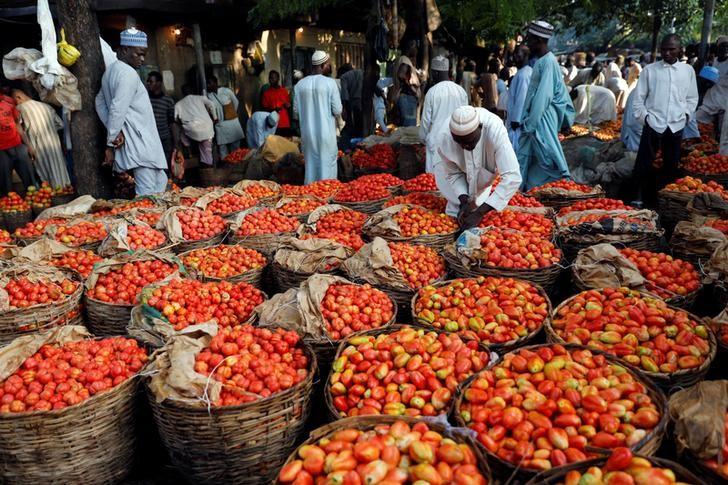Nigeria’s National Bureau of Statistics (NBS), on Friday released its latest Consumer Price Index (CPI) report, showing that inflation began its first Year-on-Year rise in August, after 18 consecutive months of decline.
Inflation for the month of August rose by 11.23%, up 0.09% from 11.14% in July, with food inflation expectedly the culprit, after galloping 13.16% upward from 12.85%; while core inflation slowed down from 10.2% in July, to 10% last month.
According to NBS, “the percentage change in the average composite CPI for the twelve months period ending August 2018 over the average of the CPI for the previous twelve months period was 13.55%, showing 0.4% point from 13.95% recorded in July 2018.”
Month-on-Month, inflation dropped slightly from 1.13% in July 2018, to 1.05%; while MoM growth in food sub-index rose to 1.42%, from 1.4%, with the growth spiked by increases in potatoes, yam and other tubers; bread and cereals, fish, vegetables, fruits, oil & fat and meat.
Urban inflation index stood at 11.67%, slightly above 11.66% in July; falling to 1.0% MoM, from 1.23%; just as rural inflation climbed by 10.84% YoY, from 10.83%; at a time it dropped MoM from 1.18% in July to 0.96%.
On a state-by-state basis, the NBS report shows that inflation was more intense in Yobe, north-east Nigeria, where it grew by 12.9%; followed by the nation’s commercial and financial hub- Lagos, where inflation jumped 12.64% up; and Enugu, capital of the old Eastern Region, where it notched 12.52% YoY.
Three states with the lowest inflation rate for August were: Kwara, which recorded 8.25% growth; Borno, also in the north-east, 9.88%; and Benue, Nigeria’s fabled food basket recorded 10.11%.
MoM, inflation grew fastest in Plateau, where it stood at 1.96%; followed by Lagos, 1.73%; and neighbouring Ogun State, 1.58%; while it was slowest Kwara, where it recorded a deceleration at -0.09%. Abia recorded a MoM inflation growth of 0.37% in August; following Delta with 0.53%.
Food inflation in the month under review, was at its peak in Lagos which recorded 15.79%; followed by the Federal Capital Territory, Abuja, 14.99%; and Ebonyi, 14.83%. Kano recorded the slowest rise at 10.64%; ahead of Akwa Ibom, 11.02%; and Borno, 11.03%.
MoM basis, Ebonyi recorded the highest rise in food inflation at 2.71%; ahead of Lagos again with 2.57%; and Katsina, 2.49%; while Abia reported the slowest growth at 0.25%; followed by Delta’s 0.27%.
Pix Credit: Reuters/Akintunde Akinleye, August 23, 2017: Yankaba market in Kano, northwest Nigeria.








